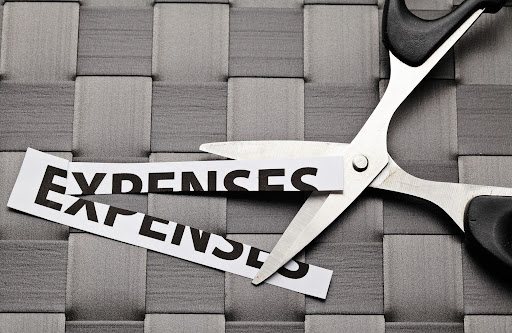How To Improve Communication In HOA Community

Communication in HOA communities is crucial to building a good relationship between the members and the HOA board. A lack of communication could cause conflict and lead to misunderstandings, accusations, and even legal complications.
HOA Communication Tools to Adopt
Homeowners associations have several tools at their disposal. Here are a few tools your community can use to foster more efficient open communication.
1. HOA Newsletter
Newsletters are an excellent way to communicate important affairs to HOA members. Publishing newsletters lets them stay updated on community projects, events, and relevant news. The best HOA newsletters also cultivate good relationships within the neighborhood.
Consider printing or distributing electronic newsletters regularly. HOAs can do so once every quarter or once a month. However, avoid publishing sensitive information or those that would humiliate members, such as the names of violating or delinquent members.
2. HOA Email Communication
Maintaining an HOA email list is a quick and effective way to communicate with members. The association can quickly distribute electronic newsletters, announcements, and board meeting minutes using the HOA email address.
However, remember that email is not always ideal for every community. For example, communities primarily catering to elderly residents might benefit more from physical mail. Apart from this, email is not appropriate for all circumstances. If a board member wants to confront a homeowner about a violation, discussing the issue in person might be best.
3. Text Messages and Phone Calls
Text blasts are a great way to send information to homeowners. They’re easily accessible for both the board and residents, and they tend to deliver information quickly, which is useful for emergencies.
In addition to these, homeowners associations can also send emergency messages through automated phone calls. This is helpful as it quickly gets homeowners’ attention. It’s also a better method of communication for homeowners with visual impairments.
4. Direct Mail
Some people may think direct mail is outdated, but it’s still a good form of communication. In fact, many elderly residents will appreciate direct mail as it’s easier for them to access. Moreover, homeowners can read these letters on their own time. They also don’t get buried in their inbox like emails or text messages.
5. Social Networking Sites
Social media can make communication between HOA boards much easier. This is especially useful if the HOA is composed primarily of younger, tech-savvy residents. Consider creating a dedicated Facebook group to disseminate announcements.
Social media is also a good way to encourage the members to connect with their neighbors. They can discuss issues informally, talk about community events, or provide suggestions to the HOA board.
However, remember that social media can get chaotic, especially when disgruntled homeowners spam unhelpful comments on HOA posts. Hence, creating an HOA communication policy or social media guidelines for members to follow may be wise.
6. Community Websites
A dedicated HOA website is a good alternative to social media platforms. It may cost more or be more difficult to set up, but the board can better control the content posted. The HOA can publish the most important announcements on the front page with a website.
In addition, websites are multifunctional and can integrate other services. For example, the board can use the portal to receive work order requests, architectural review requests, and violation reports.
7. Physical Signs, Flyers, and Bulletin Boards
Physical signage and flyers are still relevant even in the digital age. After all, not everyone is tech-savvy enough to know how to use an email address or navigate a website. We recommend posting physical signs in prominent locations like the community clubhouse bulletin board.
It’s also a good idea to post rules in relevant locations. For instance, the HOA can communicate its pool rules by posting a sign right by the community pool. They should also post parking signs in HOA parking spaces.
8. Board Meetings
Most homeowners associations conduct board meetings periodically. Use the opportunity to communicate relevant information or make announcements to the residents. It’s also a good avenue to discuss community issues such as problems with drainage, vendor issues, and the like.
9. Welcome Packet
An HOA can quickly disseminate important information to new homeowners through a welcome packet. Make sure it includes all essential information about HOA living. We recommend including the community’s governing documents and rules and regulations. Remember also to include FAQs regarding trash disposal, operating hours, and amenity use.
In addition, the welcome packet may have a resource page that lists local necessities such as grocery stores, home improvement shops, and hardware stores. The HOA can also list the contact information of local utility and service providers.
Best Practices for Communication In HOA Communities

How should communication in HOA communities be done? Follow these best practices to foster a harmonious environment.
1. Explain the Reason for Policy Changes
Board members often tell residents about policy changes without explaining them. This can lead to confusion and frustration among residents. As such, we recommend communicating why certain policies might change.
For example, the association has adopted certain pet restrictions regarding dog breeds. This decision is often not arbitrary—and it shouldn’t be. It often arises from specific incidents. For example, a resident’s violent dog may have caused an accident.
It’s also helpful to outline how the new policy benefits the community. This will help the residents understand how it will improve their quality of life. As a result, they won’t see policy changes as a limitation but an enhancement.
2. Communicate Changes Promptly
Homeowners association communication must be thorough and prompt. If there’s any change in the community, don’t delay sending word to the homeowners. Otherwise, residents not caught up with new policy changes might receive warning letters for violations they didn’t realize they’d committed.
Apart from being considerate to the homeowners, the governing documents may also require prompt communication. Some governing documents give boards only 30 days to communicate new policies.
3. Be Clear with Rules
New policies, rules, or guidelines may overwhelm the community, especially if it entails a big change. HOAs can help residents digest the changes by breaking down how the community will adopt the new rules. The residents will know what to expect and make preparations.
It may also be helpful to adopt new rules slowly. For example, a new rule may limit how long guests can park in guest parking spaces. To ease the rule into community life, incrementally decrease the allowed period. If the HOA’s goal is to limit parking to 24 hours, try limiting it to 72 hours for the first month. The HOA can then implement a 48-hour limit in the second month and a 24-hour limit in the third.
4. Use Multiple Communication Channels
One big mistake HOAs make is using only one communication channel. While certain channels like email or social media are convenient, they are not enough. Some people may not check their email or use social media. Hence, homeowners associations should use everything to keep everyone in the loop.
5. Communicate Frequently
Frequent communication in HOA communities is always better than no communication at all. Make sure the residents are up-to-date on all the HOA’s affairs. Keep them informed of upcoming events, meetings, and even minor details such as the landscaping schedules.
6. Focus on Long-Term Effects
When communicating with homeowners, HOAs should focus on the long-term benefits and effects of a rule change. This will showcase how valuable the change will become to the community.
For instance, let’s say the board has adopted a new rule that limits the types of trees homeowners can plant. Residents can more easily accept the rule if the board explains how certain tree species are more likely to cause structural damage due to sagging and falling tree branches.
7. Keep Confidential Issues Private
Constant and open communication is beneficial, but that doesn’t mean the HOA should tell the homeowners everything. Sensitive issues such as litigation, delinquencies, and private data should never be publicized to the community. Otherwise, it can cause conflict within the HOA as some individuals may feel their privacy has been breached.
Also, disclosing confidential information could be against state law or the governing documents. This could lead to lawsuits, costing the association thousands of dollars in litigation expenses.
8. Create an FAQ Page
A Frequently Asked Questions (FAQ) page is essential for any homeowners association. It’s helpful for both old and new homeowners as FAQ pages outline everything most homeowners need to know. Ensure to include common questions regarding meeting schedules, rental restrictions, tenant rights, pet regulations, monthly assessments, and voting rights.
Make Communication a Priority
Communication in HOA communities should be a top priority for HOA board members. It can make or break the residents’ overall satisfaction and keep conflict at bay. Just make sure to use the right tools and adopt effective communication practices.
Don’t have time to manage your communication channels? Personalized Property Management can help. We provide premier management services to communities all across Southern California. Call us at 760-325-9500 or email us at info@ppminternet.com for more details!























